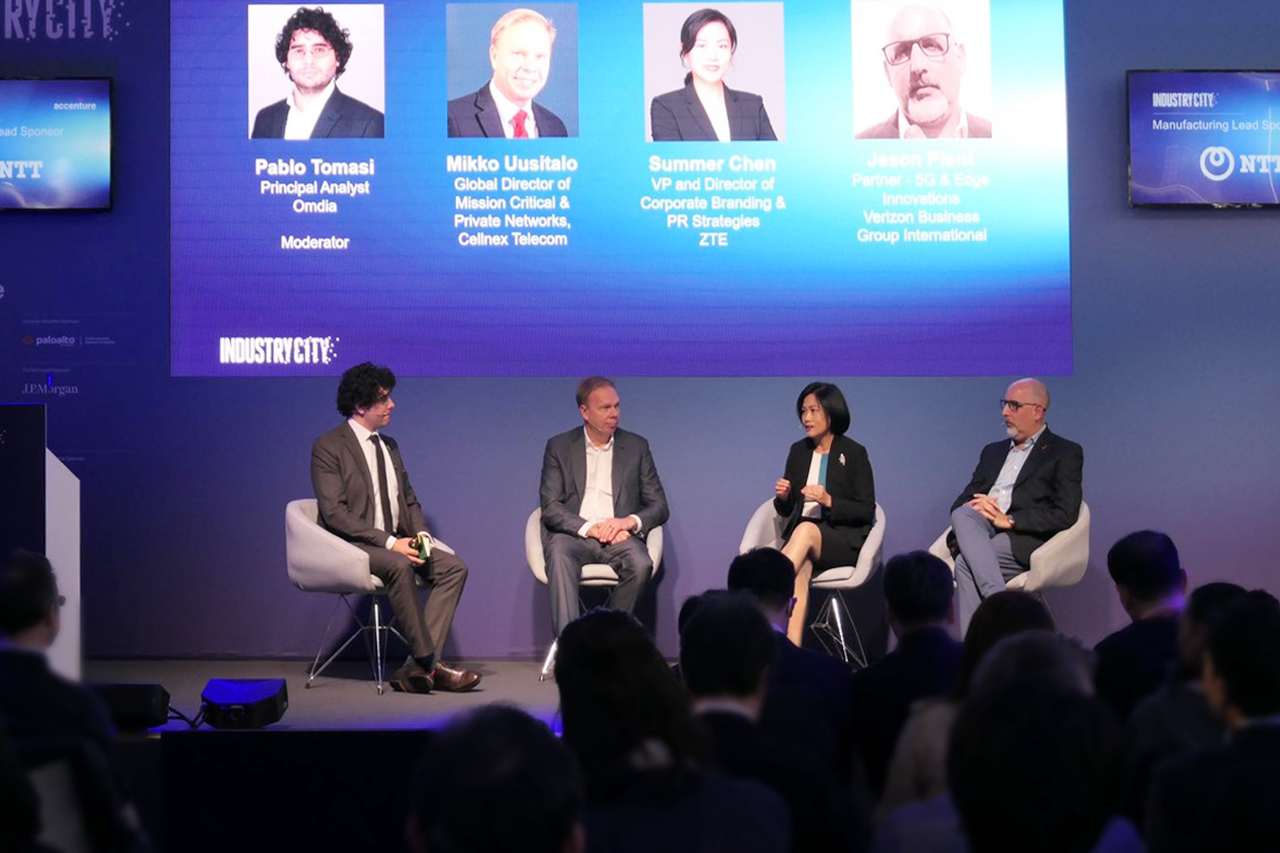Barcelona, Spain- Industrial companies embracing 5G-based digital intelligent transformation strategies can achieve significant benefits including cost reduction, efficiency improvement, quality enhancement, energy savings and safety, Chen Zhiping, VP and GM of branding and PR strategies at ZTE said during a session at Mobile World Congress 2023 in Barcelona.
During her presentation in a session dubbed “Manufacturing Summit: Remote Control – Connecting an Industrial Revolution”, Chen noted that the greatest challenge faced by both flow manufacturing and discrete manufacturing industries is to integrate the digital intelligent application and innovation with the current production process and tools.
The ZTE executive also noted that the vendor has established an industry application platform that is widely used in vertical industries such as intelligent manufacturing, transportation, energy and agricultural, among others. It is convenient for rapid replication, improving the modernization capability of the entire industry ecosystem, she said.
“ZTE is not only a 5G equipment supplier, but also a pioneer in promoting 5G industry applications. At present, we have worked with more than 500 partners to carry out extensive innovation in over 15 industries, jointly exploring more than 100 innovative 5G application scenarios. In the manufacturing industry, ZTE is dedicated to helping more companies truly move from ‘manufacturing’ to ‘intelligent manufacturing,” Chen said.
“In terms of the experience of digitalization, there are three main points to keep in mind: First, we need to carry out comprehensive in-depth scenario research. Industrial use scenarios and development stages for enterprises can differ greatly, with increasingly diversified and fragmented demands emerging. Therefore, the challenge we face is how to integrate 5G technology with other new technologies, such as AI, edge computing and big data.”
She added that a second key point is to have a dedicated professional team who knows well both telecommunications and applications. “5G intelligent manufacturing is based on a close loop, from planning, deployment to operation and maintenance, as well as from systems to terminals. It requires systematic engineering that involves the move from technology to integration, application to architecture upgrading. Therefore, it is essential to build, cultivate and empower talent teams in digitalization.”
“Third, 5G private networks require dedicated equipment, which in turn requires abundant capital investment. Over the past few years, industrial companies have been innovating, integrating and iterating next-generation technologies, such as private 4G, 5G, industrial edge, equipment and analytics with Wi-Fi and IoT to gradually promote digital transformation,” she added.
During the presentation, Chen also highlighted that ZTE has set up a 5G Global Intelligent Manufacturing Base in Nanjing, China, which utilizes 5G’s high bandwidth and low latency to realize innovative applications. “Here, machine vision is like our eyes, robots are like our hands, cloud-based AGV are like our legs, intelligent operation centers seem like our brains. With these innovative technologies, we can achieve autonomous production in a ‘lights-off’ factory. As a result, the factory has increased the average output per person by 113%, shortened the delivery cycle by 42%, reduced the product launch cycle by 17% while the energy consumption of the factory has been reduced by 40%. This is a good example of energy saving and emission reduction for advanced manufacturing.”
Chen also noted that ZTE had seven 5G use cases chosen in the 2022 GSMA Global 5G Transformation Hub, while 2 cases won the final awards. In the first case, ZTE helped packaging manufacturer Hotel Star to construct a 5G-enabled carton production plant, which won the 5G Smart Production Challenge Award by GSMA. In the second case, ZTE helped Dahaize Coal Mine realize 5G smart mining and empowered safe production, for which the vendor received the ‘5G Energy Challenge Award’ by the GSMA.

